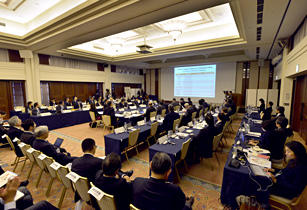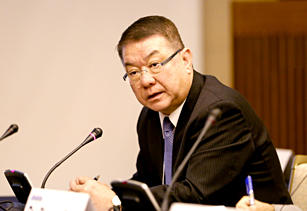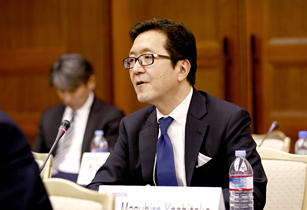Hiroshi Ishikawa, Ph.D. (right) Fellow, Medicinal Chemistry at Otsuka, who was one of the key members of the Otsuka team that developed the drug delamanid, spoke with stirring passion at the conference about the scale of the challenge involved in creating a new TB drug. It included the study of over 14,000 compounds across two decades, something that a single chemist could not hope to accomplish in 100 years.
With an eye toward the future he noted that TB drug development will need to be simpler to reduce costs and facilitate broader access by patients.
Dr. Ishikawa also drew the attention of the audience to broader issues in the fight against TB. One is the need for improved diagnostics, especially kits that can rapidly measure TB bacilli susceptibility to drugs and biomarkers that can differentiate active from latent cases.










